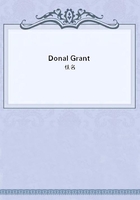
第101章
A little moan escaping her as she looked one evening into her money-teapot, made Donal ask her a question or two. She confessed that she had but sixpence left. Now Donal had spent next to nothing since he came, and had therefore a few pounds in hand. His father and mother had sent back what he sent them, as being in need of nothing: sir Gibbie was such a good son to them that they were living in what they counted luxury: Robert doubted whether he was not ministering to the flesh in allowing Janet to provide beef-brose for him twice in the week! So Donal was free to spend for his next neighbours--just what his people, who were grand about money, would have had him do. Never in their cottage had a penny been wasted; never one refused where was need.
"An'rew," he said--and found the mother-tongue here fittest--"I'm thinkin' ye maun be growin' some short o' siller i' this time o' warklessness!"
"'Deed, I wadna won'er!" answered Andrew. "Doory says naething aboot sic triffles!"
"Weel," rejoined Donal, "I thank God I hae some i' the ill pickle o' no bein' wantit, an' sae in danger o' cankerin'; an' atween brithers there sudna be twa purses!"
"Ye hae yer ain fowk to luik efter, sir!" said Andrew.
"They're weel luikit efter--better nor ever they war i' their lives; they're as weel aff as I am mysel' up i' yon gran' castel. They hae a freen' wha but for them wad ill hae lived to be the great man he is the noo; an' there's naething ower muckle for him to du for them; sae my siller 's my ain, an' yours. An'rew, an' Doory's!"
The old man put him through a catechism as to his ways and means and prospects, and finding that Donal believed as firmly as himself in the care of the Master, and was convinced there was nothing that Master would rather see him do with his money than help those who needed it, especially those who trusted in him, he yielded.
"It's no, ye see," said Donal, "that I hae ony doobt o' the Lord providin' gien I had failt, but he hauds the thing to my han', jist as muckle as gien he said, 'There's for you, Donal!' The fowk o' this warl' michtna appruv, but you an' me kens better, An'rew. We ken there's nae guid in siller but do the wull o' the Lord wi' 't--an' help to ane anither is his dear wull. It's no 'at he's short o' siller himsel', but he likes to gie anither a turn!"
"I'll tak it," said the old man.
"There's what I hae," returned Donal.
"Na, na; nane o' that!" said Andrew. "Ye're treatin' me like a muckle, reivin', sornin' beggar--offerin' me a' that at ance! Whaur syne wad be the prolonged sweetness o' haein' 't i' portions frae yer han', as frae the neb o' an angel-corbie sent frae verra hame wi' yer denner!"--Here a glimmer of the old merriment shone through the worn look and pale eyes.--"Na, na, sir," he went on; "jist talk the thing ower wi' Doory, an' lat her hae what she wants an' nae mair. She wudna like it. Wha kens what may came i' the meantime--Deith himsel', maybe! Or see--gie Doory a five shillins, an' whan that's dune she can lat ye ken!"
Donal was forced to leave it thus, but he did his utmost to impress upon Doory that all he had was at her disposal.
"I had new clothes," he said, "before I came; I have all I want to eat and drink; and for books, there's a whole ancient library at my service!--what possibly could I wish for more? It's a mere luxury to hand the money over to you, Doory! I'm thinkin', Doory," for he had by this time got to address her by her husband's name for her, "there's naebody i' this warl', 'cep' the oonseen Lord himsel', lo'es yer man sae weel as you an' me; an' weel ken I you an' him wad share yer last wi' me; sae I'm only giein' ye o' yer ain gude wull; an' I'll doobt that gien ye takna sae lang as I hae."
Thus adjured, and satisfied that her husband was content, the old woman made no difficulty.